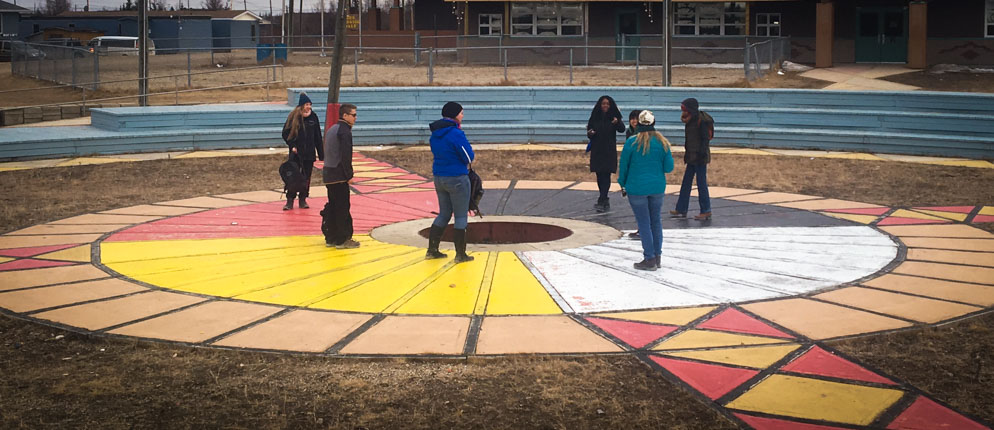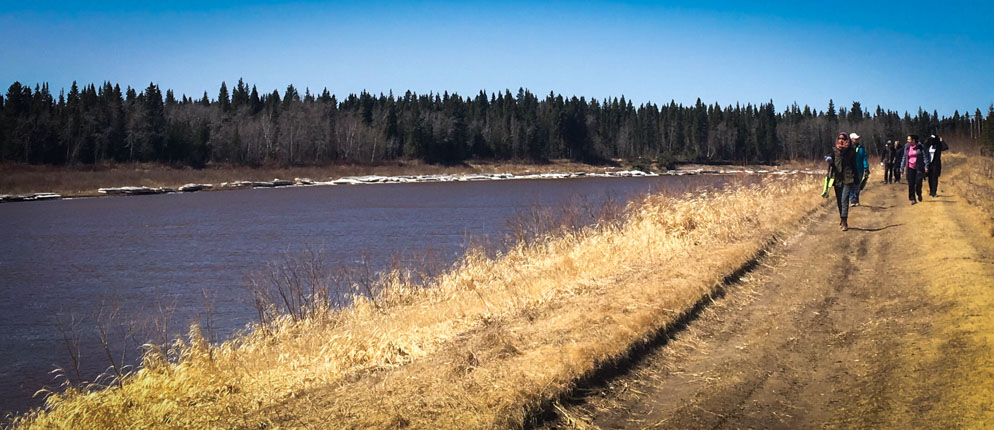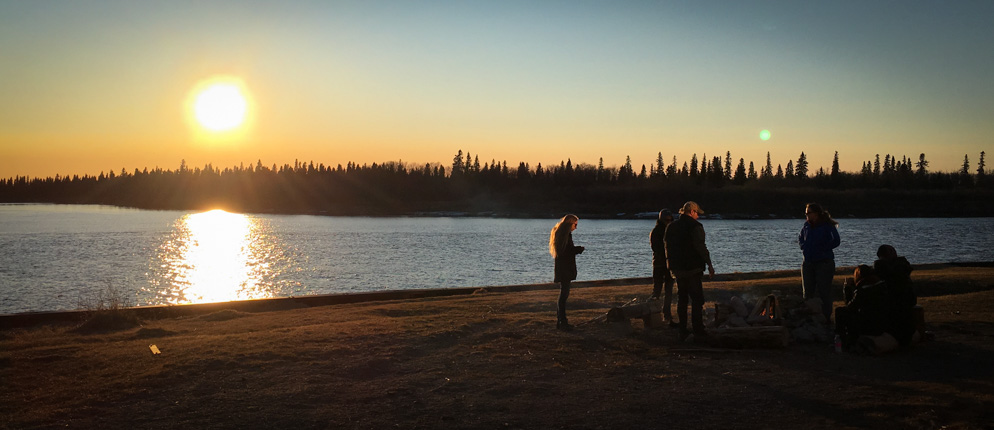- Future Students
- Current Students
- Faculty
- Staff
- Alumni
- Others
Examining mental health in northern Ontario

For 10 days in early May, a group of Psychology students traveled north to learn more about Aboriginal mental health. Guided by Dr. David Danto, Program Head of Psychology, they flew 1000 km to the coast of James Bay, visiting communities such as Fort Albany, Moosonee and Moose Factory. The trip complemented time spent in the classroom, giving the students a first-hand opportunity to hear stories of challenge, resilience, and strength from Aboriginal communities in northern Ontario.
This was the sixth year that Dr. Danto has run the trip, taking students to healing lodges, clinics and community centres to speak with Elders, residential school survivors, community members and mental health service providers. “The field course is first and foremost a listening trip,” says Dr. Danto. “The lecturers in this course are the community members. They are the experts of their lives and the general population doesn’t have the knowledge of what these communities have been through, so it’s so very important to respectfully just listen and bear witness to these narratives. It’s through listening that we try to come to understand what some of the influences are that have led to the large disparity in mental health outcomes in the region.”
Those conversations often brought the class to matters of tradition. As part of their trip they toured a healing lodge that combines traditional healing practices with a 12-step addiction recovery program, stayed in an Ecolodge that introduces its guests to Cree history and embodies Cree values such as hospitality and living in harmony with nature. The class also visited Moose Factory’s Cultural Interpretive Centre where the students participated in the preparation of a traditional feast.

“A great deal of the Psychology literature directly ties tradition to positive mental health outcomes.” says Dr. Danto. “The impact of colonial occupation, displacement and forced sedentarization on Indigenous peoples has meant that much tradition was lost. Furthermore, the residential school system was meant to eliminate Aboriginal culture, removing language, disrupting tradition, and ultimately impacting community and individual identity, not only for the immediate survivors, but intergenerationally as well.”
On the trip, discussions of tradition often related back to residential schools, a network of boarding schools designed to assimilate Aboriginal children into Euro-Canadian culture. Starting in 1876 and running for more than 100 years, the schools forcibly removed Aboriginal children from their families and brought them into environments where physical, mental and sexual abuse was rampant. Thousands of children died in the system, and many of those that survived were traumatized.
For fourth-year Psychology student Christopher Barron, hearing stories of residential schools from people who experienced them first-hand was an eye-opening experience. Their effect on Aboriginal mental health and culture was something he had read about in textbooks, but it was different to hear from people who had lived them.

“You can learn about concepts like cultural sensitivity in a classroom, but it’s different to be immersed, see people’s experiences and have them tell their own stories,” he says. “The survivors of residential schools we met were mostly Elders, but we learned about intergenerational trauma and how the damage can continue on from parents to children. A few different people said that even after the residential schools were closed, they were afraid to send their kids to school — it made them really nervous.”
Amid those dark stories, Barron says he saw something that’s often missed when talking about Canada’s Aboriginal communities.
“The media focuses so much on the negatives, ignoring all of the good that happens,” he says. “In every story of difficulty there was strength, resilience and so much kindness.”
Running the trip to northern Ontario provides something students can’t often get on campus. For Dr. Danto, it’s a chance to give his students hands-on experience in their field, meeting people they will hopefully continue to learn from and work with one day.
“I can attempt teach our students the facts, but I would like to do more than that. This course is about the emotional learning as well that derives from hearing, speaking, engaging and visiting with Aboriginal community members. In so doing, it’s my hope that our graduates will not only grow as students but as part of this narrative of strength, support, respect and change that includes them,” he says. “After this course, students often want to get involved and want to help — that kind of motivation rarely comes from a textbook alone.”
Learn more about Psychology at UofGH.

